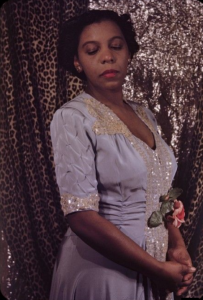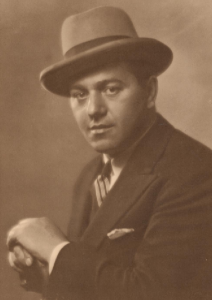Podcast: Play in new window | Download (Duration: 59:16 — 68.3MB) | Embed
Subscribe: Spotify | TuneIn | RSS | More
As the United States faces its most momentous and contentious election since at least 1968, let’s turn for today to our neighbors to the North to become acquainted with one of their cultural icons: the African Canadian contralto Portia White (1911-1968), the first internationally renowned Black Canadian classical singer, named a “person of national historic significance” by the Canadian government in 1995. Her story is taught to Canadian school children, her legacy has yielded operas, musicals, plays, and memorials which celebrate her contribution; she has even appeared on a stamp issued by Canada Post. In Canada she is revered with the same significance as are Marian Anderson, Dorothy Maynor, and Roland Hayes. And yet in the United States she is virtually unknown. Part of this is no doubt because she left no commercial recordings, and because her international career was so brief. This episode seeks in its own humble way to right that wrong, and to place Portia White in the context of other Black singers of her era. At the time of her death of cancer in 1968, a memorial LP was issued containing live recordings from the 1940s, including selections by Schubert, Fauré, Bizet, and Arne; French Canadian folk songs, and spirituals. I have arranged those selections into an “imaginary recital” such as she might have given in one of her concerts during those years. The episode is framed by two different recordings of her “theme song,” the poignant and plangent “Think on Me.” White is the first of two contraltos of international significance I will be presenting this week. I am honored and thrilled to introduce (or re-introduce) her to you today.
Countermelody is a podcast devoted to the glory and the power of the human voice raised in song. Singer and vocal aficionado Daniel Gundlach explores great singers of the past and present focusing in particular on those who are less well-remembered today than they should be. Daniel’s lifetime in music as a professional countertenor, pianist, vocal coach, voice teacher, and journalist yields an exciting array of anecdotes, impressions, and “inside stories.” At Countermelody’s core is the celebration of great singers of all stripes, their instruments, and the connection they make to the words they sing. By clicking on the following link (https://linktr.ee/CountermelodyPodcast) you can find the dedicated Countermelody website which contains additional content including artist photos and episode setlists. The link will also take you to Countermelody’s Patreon page, where you can pledge your monthly support at whatever level you can afford.

